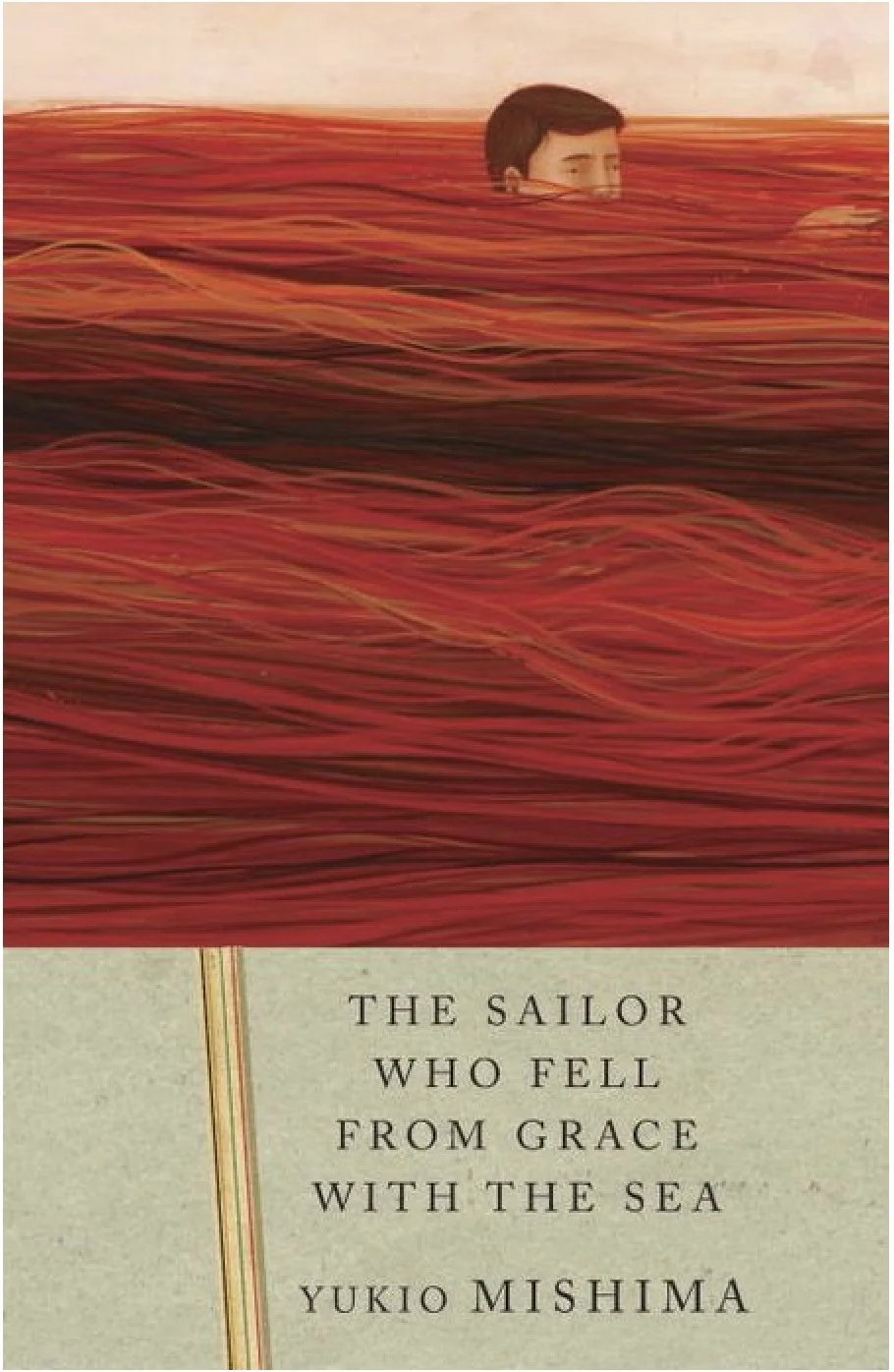The Sailor Who Fell From Grace with the Sea
by Yukio Mishima
A haunting, unsettling novel about purity, violence, and the collapse of ideals
This post contains affiliate links. If you purchase through these links, I may earn a commission at no additional cost to you.
Looking for a spoiler-free take on The Sailor Who Fell From Grace with the Sea?
Here’s what it’s about, how it left its mark on me, and why this quiet novel still disturbs me years after reading it.
What It’s About
Set in postwar Japan, this slim novel follows a widow, her adolescent son, and a ship officer who enters their lives with quiet dignity. What unfolds is a story that explores obsession, hero worship, and the terrifying lengths some will go to in order to preserve a perceived ideal.
Mishima’s prose is stunning: restrained, elegant, and poetic, but it serves a narrative that grows increasingly disturbing. The sea is ever-present, both as setting and metaphor, but don’t be fooled by the beauty of the writing. Darkness pulses beneath every line.
This is a book about disillusionment, moral detachment, and the violence of purity.
My Take
Chilling. Beautiful. Ethically jarring.
This is one of those books that leaves a cold imprint. It’s not long, but its impact lingers. Mishima doesn’t rely on shock, he uses distance, logic, and language to build dread. There are no melodramatics here, which makes the final acts even harder to shake.
What struck me then, and still resonates now, is how convincingly Mishima captures a mind warped by ideology. Especially disturbing is the way innocence becomes weaponized. The line between admiration and destruction collapses entirely.
I won’t reveal more. The less you know going in, the more it grips. Just know this: the emotional weight of the book is real. And the cruelty, particularly toward animals, is something readers should be prepared for.
Would I Recommend It?
Yes, for certain readers.
If you’re looking for a soft or uplifting read, this isn’t it. But if you’re drawn to morally complex literature with sharp prose and psychological intensity, it’s unforgettable. It forces you to sit in discomfort and in that space, it does what great literature often does: it disturbs you into thinking.
Trigger Warning:
Animal cruelty, emotional detachment, psychological manipulation, violence
Read this if you liked:
The Vegetarian – radical personal transformation and societal breakdown
Convenience Store Woman – outsider logic and cultural dissonance through eerie detachment
Weasels in the Attic – deeply unsettling, detached narration, moral ambiguity
Where to Read It:
Buy on Amazon
Buy on Bookshop.org First time on Bookshop.org? Click for discount code
Join the conversation in the My Asian Era book club on Fable
Not on Fable yet? Download the app here.
Looking for your next read?
My Asian Era is where literature meets culture — thoughtful reviews, quiet voices, and stories worth slowing down for.

